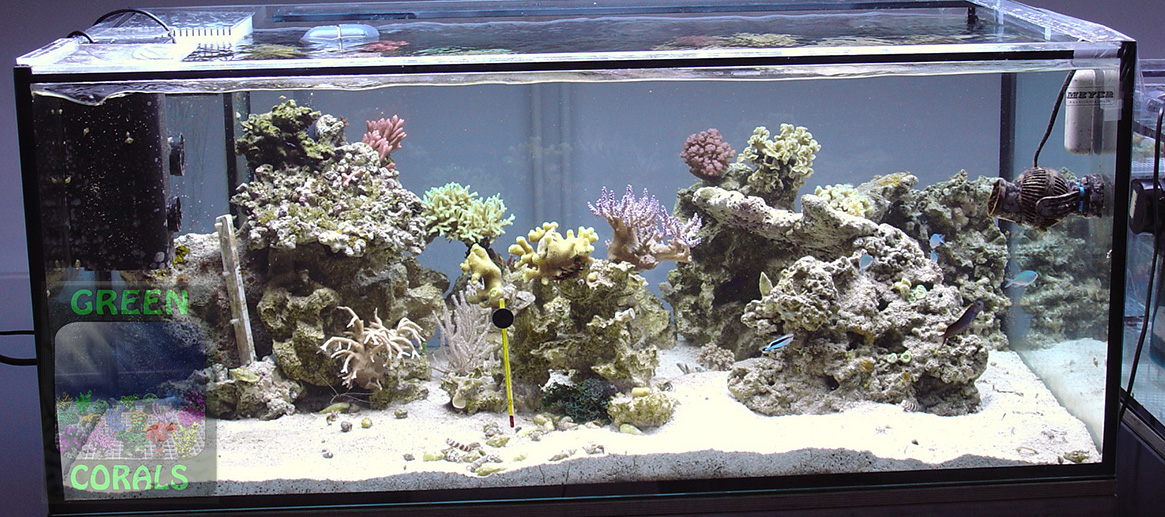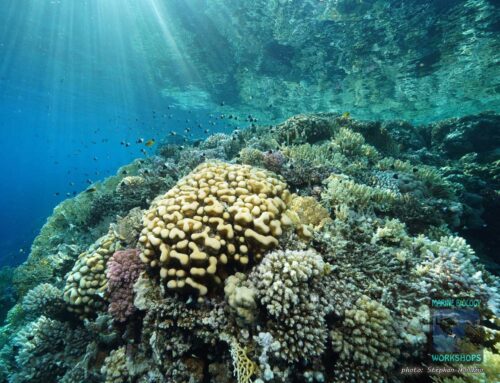Roughly half a year passed by since we projected and built up a closed recirculation unit for the keeping of warm water corals at the GEOMAR in Kiel.
In 2 stages (4 days in all) a fully functioning coral reef aquarium was set up, with a rich stock of corals right from the beginning.
An approximately one year planning phase preceded this.
A former Photo lab was chosen as roomspace and a water-impermeable floor covering was installed.
This considerable facility is needed for diverse current and future research projects, which require the cultivation of reef building corals under controlled laboratory conditions.
Stage 1, 13th/14th May 2013:
During the first stage, the main aquarium (120x60x50cm³) and the filter sump were installed and put into operation: PVC-tubes, pipes and fittings, protein skimmer, aquarium computer with regulation of temperature, automized water refill, pH measuring, insertion of coral sand, construction of reef ceramics, live rock, fill up with both – fresh and mature salt water, and even the first robust pioneers were introduced as well: Various snails, hermit crabs, sea stars, macro algae and some modest soft corals and gorgonians.
Everything went like clockwork, although the 30-hour installation was a real challenge.
In the following, Dr. Isabelle Taubner and Dr. Florian Böhm lead the tank through an eleven-week run-up phase to obtain a biological balance. Since then they have been caring thoroughly for the animals, the technical devices and all relevant water parameters.
Stage 2, 30th/31th July 2013:
During the second stage, the culture tank for coral fragments (120x50x40cm³) was connected to the recirculation system and fish, invertebrates and corals were inserted:
14 fish out of 8 suitable species, shrimps, urchins, sea stars, tube worms, as well as 10 well-grown coral colonies entered the aquarium. Of course that was a real highlight!
The calcium reactor was put into service as well.
Equipped with everything that is necessary for the successful operation of a coral reef aquarium, we talked about everything in detail and finally we even performed a small coral fragmentation workshop.
In the following months the aquaria developed very well. The fish and corals were excellently supplied and fed with high-grade frozen food, plankton and pellet food mostly two times a day.
Despite this quite rich feeding regime the nitrate value remained low and the phosphate value was not even detectable.
The corals are growing excellently and are bright and colourful.
In January 2014 ten more fish and 22 invertebrates were introduced.
We will keep on reporting.
Here you can see the development of the tank with pictures from:
- September 2013
- September 2014
- September 2015

























